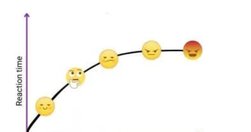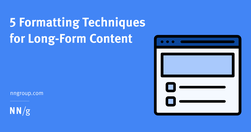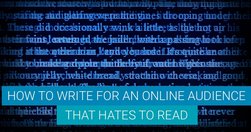Relevant Overviews

How minimizing reader decisions makes writing more powerful 💪

Techniques like summaries, bullet points, callouts, bolding, and helpful visuals improve comprehension and engagement with content exceeding 1,000 words.

People Don’t Read Online—They Scan. This Is How to Write for Them Scanning is searching. Reader’s behavior when scanning may seem pure laziness, but it’s not. It’s an efficient strategy to seek out and filter information. Scanning also allows readers to avoid informational overload.

The smaller the word count (and in general, the more concise your online communication), the more users will comprehend and retain your message.

Clarity, not creativity, is the backbone of good UX writing. Choose simple words and craft shorter sentences. Explain acronyms users might not know. Use proper punctuation. Be extra careful about things like cleverness, wordplay, and idioms that might affect usability. Above all, write to be understood.

Imperative voice gets shared. Imperative voice boosts email click, open and read rates.

"Users rarely read an entire webpage. That means you need to adopt a different style when writing for the web. A style that accommodates this lack of attention."
"understand the digital reader’s brain, and to get a couple of concrete writing tips for your next digital text." "Nothing can surpass a text when it comes to transforming abstract thoughts into concrete expression."